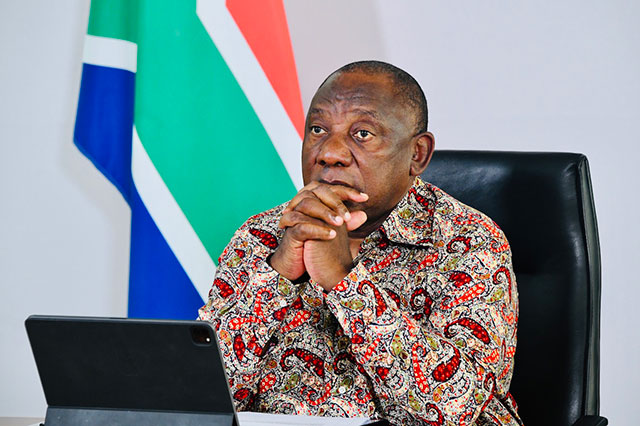Cape Town – President Cyril Ramaphosa has highlighted the importance of South Africa keeping pace with other countries in incentivising the production of electric vehicles (EVs).
This comes as global automaker BMW announced a R4.2 billion investment to equip its Rosslyn Plant in Tshwane for the production of the next generation BMW X3 hybrid plug-in vehicle, marking the first locally produced EV in South Africa.
In his weekly newsletter, Ramaphosa stressed the need for collaboration between government, civil society, business, and labour to boost EV production and ensure the future of the country’s auto manufacturing sector amidst decarbonisation efforts.
“Among other things, this means that auto manufacturers need to be supported to expand their investment in the production of new energy vehicles in South Africa. We currently have a range of measures to support automotive manufacturers, such as the Special Economic Zone incentives, the Automotive Investment Scheme and others.
“We will soon be finalising a strategy to support the transition to electric vehicle manufacturing that is affordable and effective. It is key that South Africa keeps up with other countries, including on the continent, that are incentivising the manufacture and uptake of electric vehicles as the world moves towards decarbonisation,” Ramaphosa said.
The decarbonisation of our society can be used to drive growth, improve industrial competitiveness, create jobs and harnessing the potential of innovation. https://t.co/ecV4HKisOs pic.twitter.com/JRBLZZLteX
— Cyril Ramaphosa 🇿🇦 (@CyrilRamaphosa) July 3, 2023
He said that South Africa will soon finalise a strategy to support affordable and effective EV manufacturing and emphasized the importance of aligning with other countries, including African nations, that are incentivizing EV production.
Ramaphosa also acknowledged the potential challenges posed by carbon taxes on imports, as countries worldwide seek to reduce environmental impact.
He highlighted the significance of South Africa’s Just Energy Transition Investment Plan (JET IP) to support workers, communities, and industries affected by the shift to renewable energy sources and to invest in new sectors like green hydrogen and EVs.
President Ramaphosa said in light of this, South Africa’s Just Energy Transition Investment Plan (JET IP) is critical to “direct resources both to supporting workers, communities and industries affected by the shift towards renewable energy sources, and to investing in new industries like green hydrogen and electric vehicles”.
“This is particularly important as many of our export markets are increasingly seeking to reduce the negative environmental impact of the goods they produce and import. The European Union, for example, has decided to ban the sale of new petrol and diesel-powered motor vehicles from 2035.
“This has significant implications for South Africa since Europe accounts for about 60% of our motor vehicle exports. This presents both a threat to our auto industry, which mainly produces petrol and diesel vehicles, and an enormous opportunity,” he said.
He noted that South Africa’s large reserves of platinum and favourable conditions for renewable energy make it an attractive location for green hydrogen production, which could be used as an e-fuel in vehicles exempted from future EU bans on petrol and diesel-powered cars.
President Ramaphosa expressed optimism that decarbonisation can drive economic growth, enhance industrial competitiveness, create jobs, and foster innovation in South Africa, while ensuring an equitable and inclusive transition.
Follow African Insider on Facebook, Twitter and Instagram
Picture: Twitter/@PresidencyZA
For more African news, visit Africaninsider.com
Compiled by Betha Madhomu


